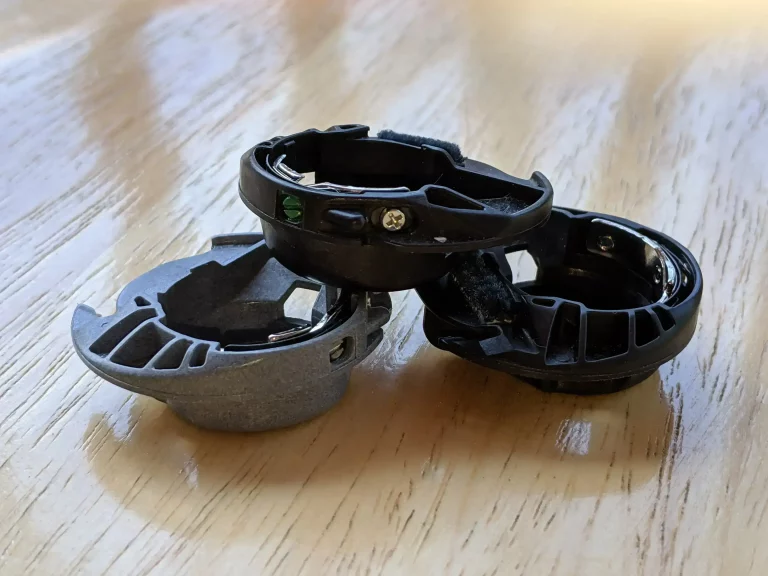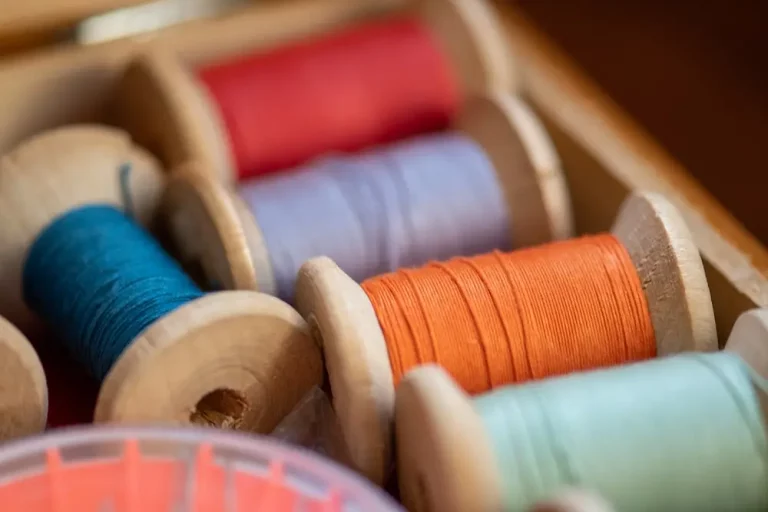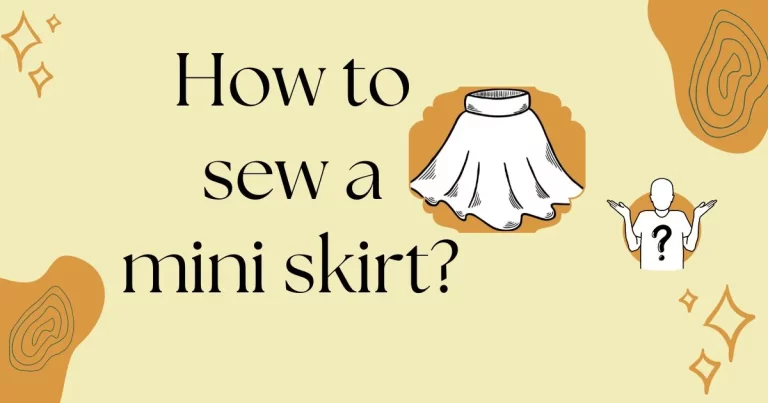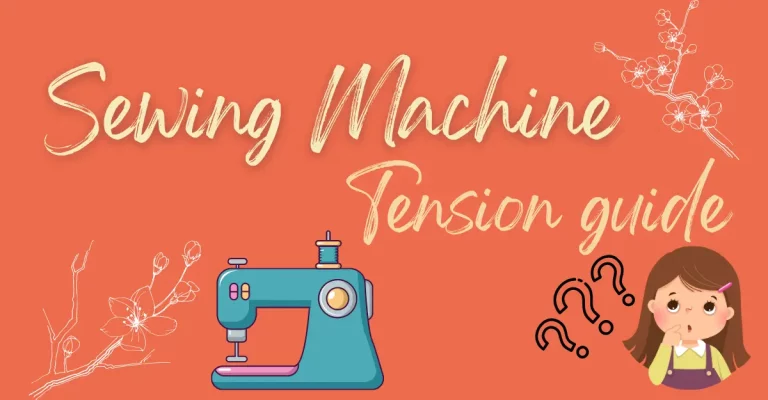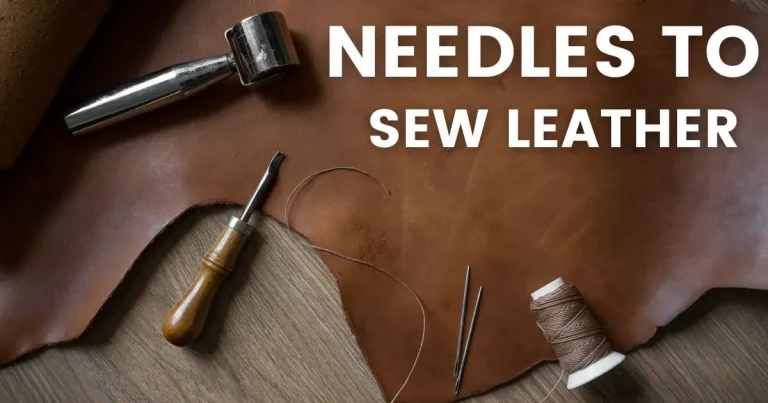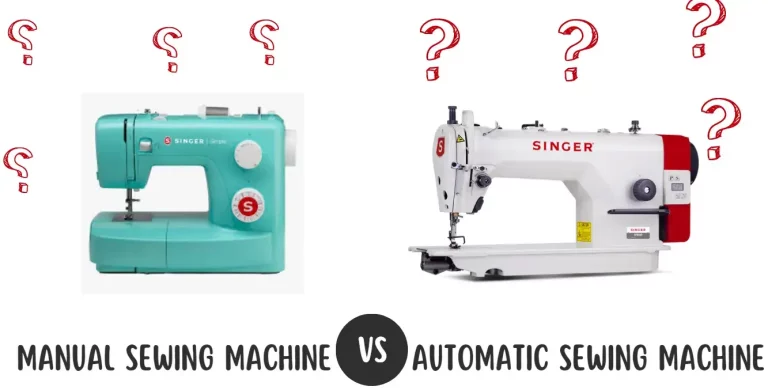25 MUST HAVING MEASURING TOOLS IN SEWING:(NAMES & PICTURES)
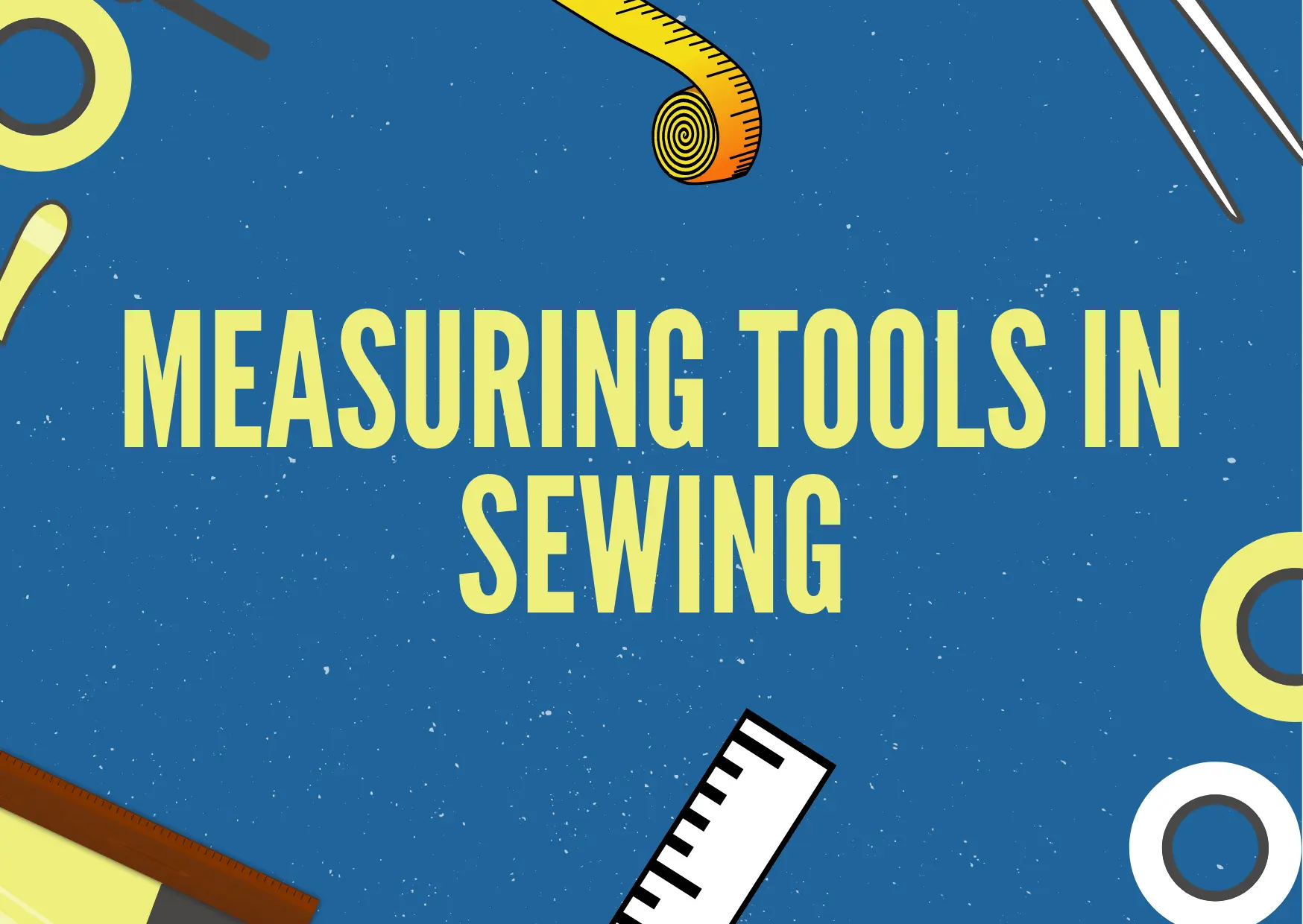
Measuring tools in sewing play a crucial role in the success of any sewing project. Accurate measurements ensure a perfect fit, clean lines, and a professional-looking finished product. In sewing, there is a wide range of measuring tools available that are designed to assist with every aspect of the process, from pattern-making to cutting, and even finishing touches. Whether you are a beginner or a seasoned pro, knowing how to use these tools effectively is essential to achieving a polished and well-fitting garment. This article provides an overview of the most commonly used measuring tools in sewing and how to use them.
Top 25 Measuring tools in Sewing
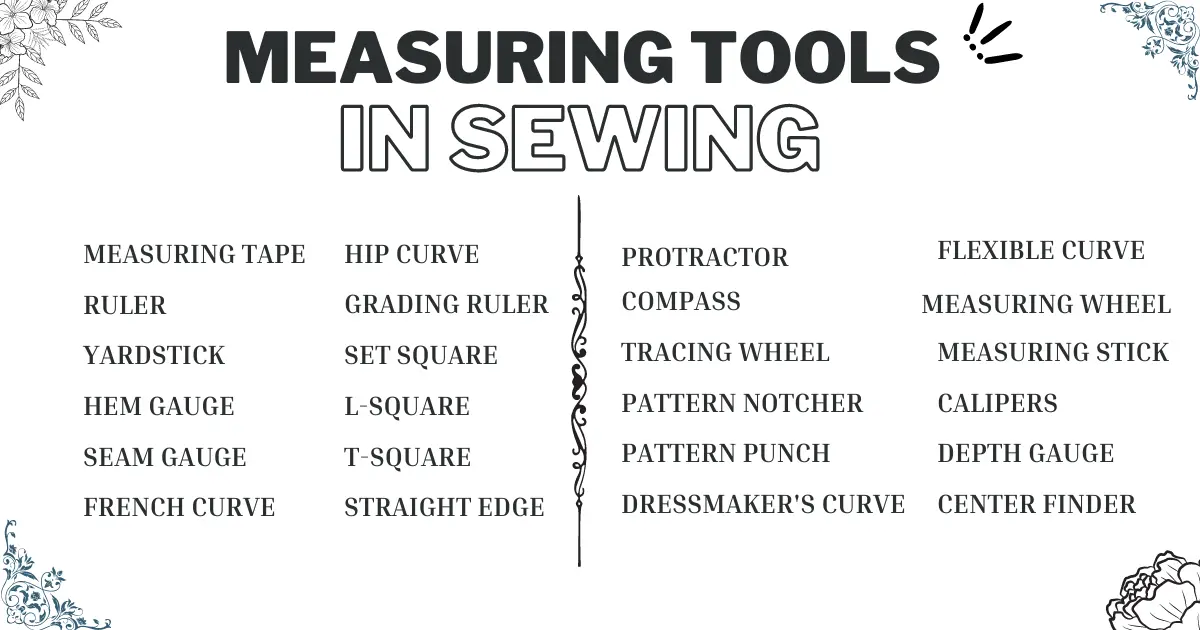
Measuring tools in sewing – Detailed
Measuring tape
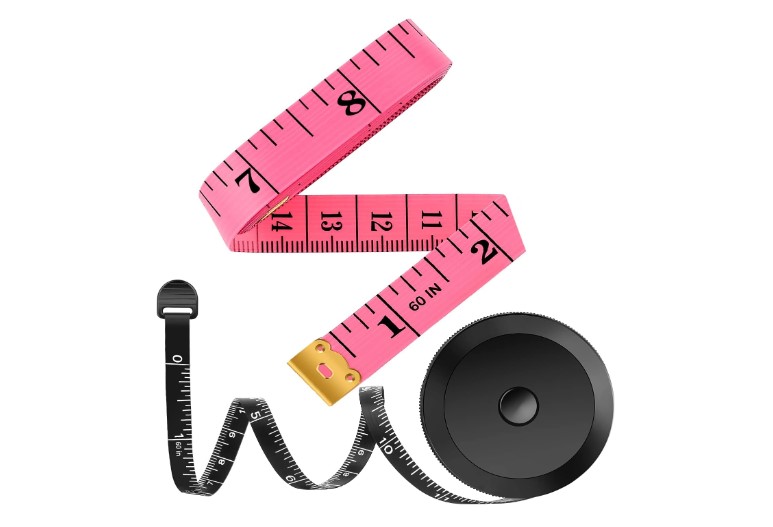
A measuring tape is a flexible, flat ribbon or strip with linear-measurement markings on it, used for measuring lengths and distances. It is often made of a durable material, such as vinyl or fiberglass, and can be rolled up for easy storage. The most common measuring tapes used in sewing are 60 inches (150 cm) long.
Ruler
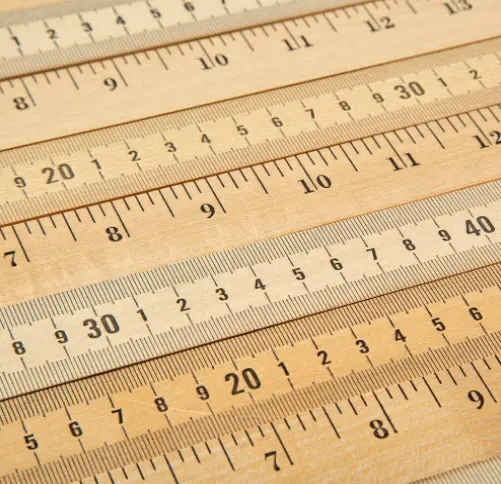
A ruler is a flat, rigid, and straight instrument that is used to measure and draw straight lines. It usually has markings along its edge that denote units of measurement, such as inches, centimeters, or millimeters. Rulers come in various lengths, and the most commonly used ruler in sewing is the 6-inch (15 cm) ruler.
Yardstick
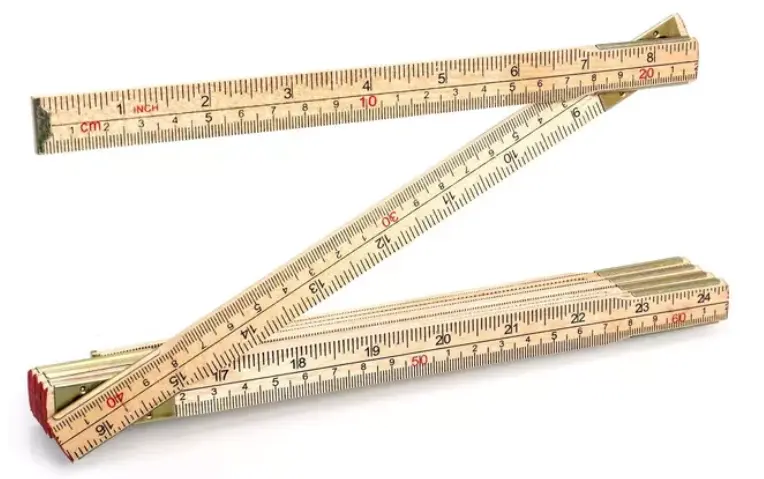
A yardstick is a long, narrow, and flat tool used to measure lengths and distances up to three feet (91 cm). Yardsticks are usually made of wood or plastic and have linear-measurement markings along their length. They are often used for measuring fabrics and other large pieces of material.
Hem gauge
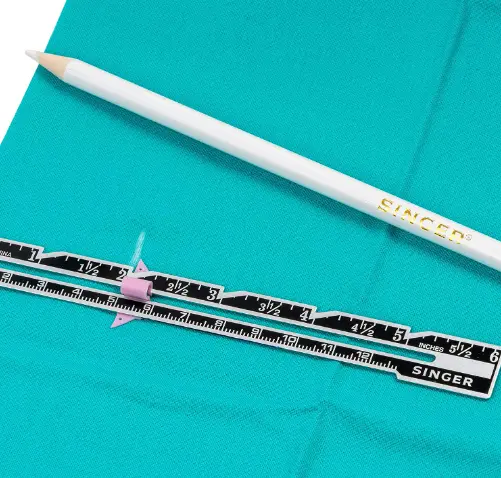
A hem gauge is a flat tool used for measuring and marking hems. It is typically a small, thin metal ruler with notches or markings at regular intervals to indicate various hem widths. Hem gauges are helpful for ensuring that hems are even and straight.
Seam gauge
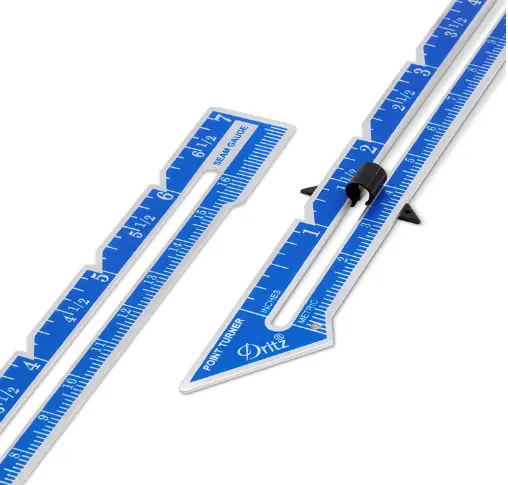
A seam gauge is a small, flat tool used for measuring and marking seam allowances. It is often made of metal or plastic and has notches or markings at regular intervals along its length to denote seam allowances of various widths. Seam gauges are essential for ensuring accurate seam allowances while sewing.
Read more: Major sewing problems
French curve
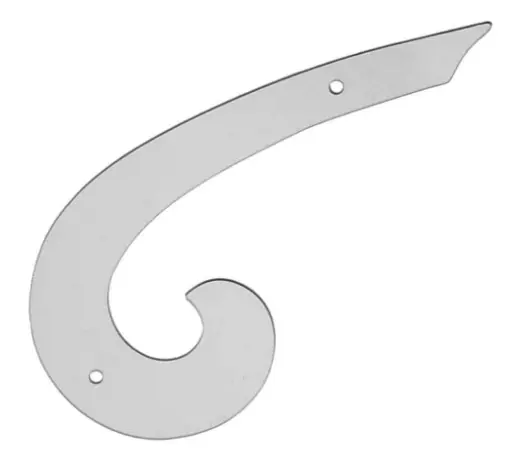
A French curve is a curved ruler used in sewing to create and draw smooth, freehand curves. It is often made of clear plastic and has a variety of curved edges with different radii. French curves are essential for creating pattern pieces, altering patterns, and drafting curved seam lines.
Read more: How to oil a sewing machine
Hip curve
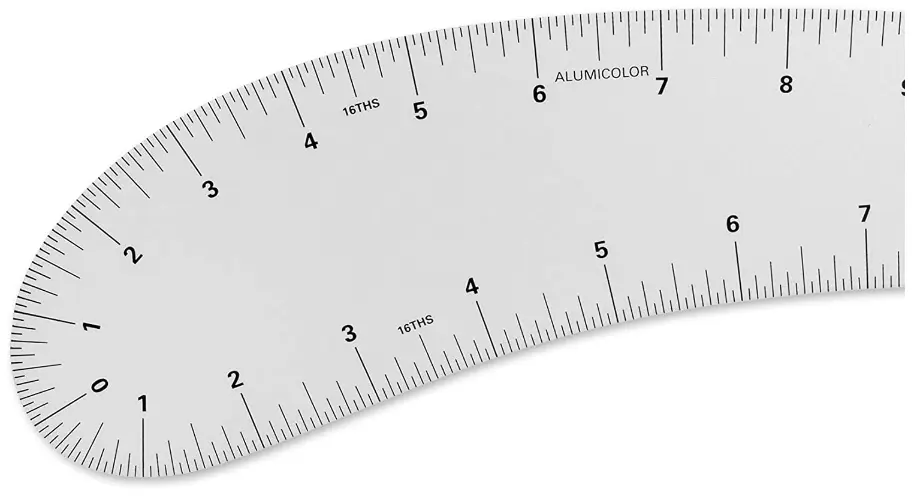
A hip curve is a curved ruler used in sewing to create and draw smooth, freehand curves around the hip area of a garment. It is often made of clear plastic and has a curved edge with a gentle, sweeping curve. Hip curves are essential for creating pattern pieces and altering patterns.
If you want to read about Different types of sewing machine, Click on the link given.
Grading ruler
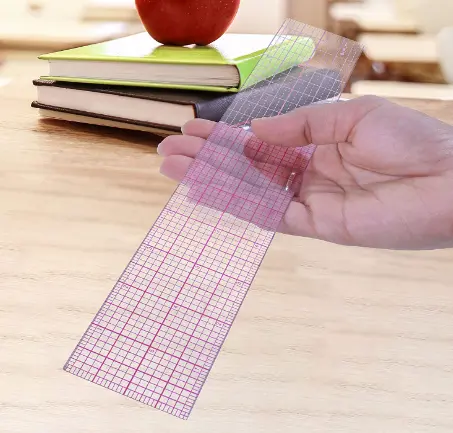
A grading ruler is a specialized ruler used in sewing to create pattern pieces in different sizes. It usually has several linear-measurement markings along its length, as well as a series of curves that allow for easy grading of pattern pieces. Grading rulers are essential for creating professional-grade pattern pieces.
Read more: Sewing Machine Tension Guide
Set square
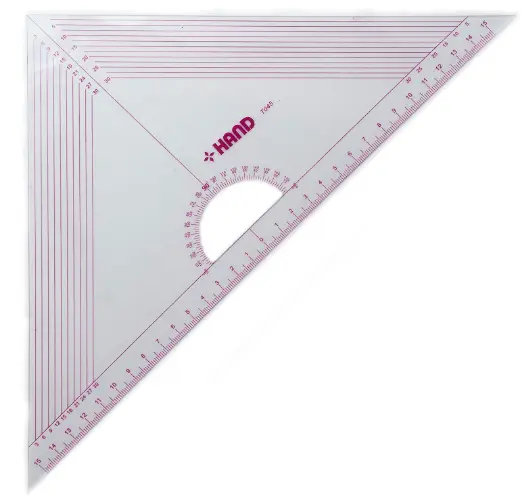
A set square is a triangular ruler used in sewing to measure and draw 90-degree angles. It is often made of clear plastic or wood and has two edges that form a right angle. Set squares are essential for creating square corners in pattern pieces and ensuring that seams are straight.
L-square
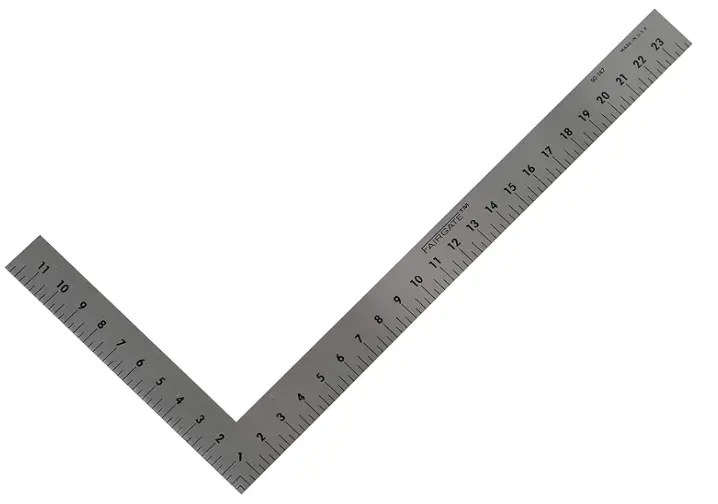
An L-square is a specialized ruler used in sewing to measure and draw precise 90-degree angles. It is often made of metal or clear plastic and has two straight edges that form an L-shape. L-squares are essential for creating pattern pieces and ensuring that seams are straight.
T-square
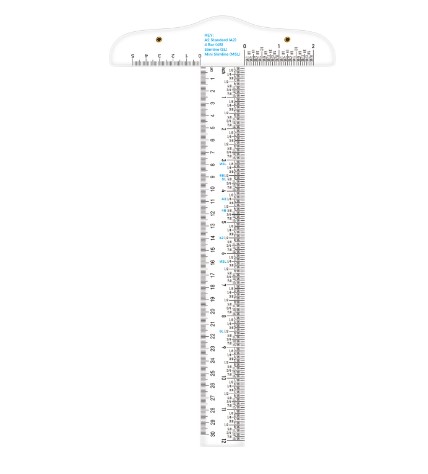
A T-square is a straight edge ruler with a perpendicular handle used in sewing to measure and draw precise 90-degree angles. It is often made of wood or metal and has a crosspiece that slides along the ruler to ensure accurate measurements. T-squares are essential for creating pattern pieces and ensuring that seams are straight.
Read more: How to sew a snap button?
Straight edge
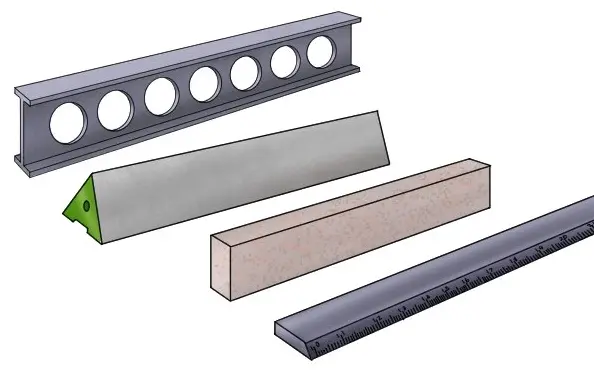
A straight edge is a flat ruler used in sewing to measure and draw straight lines. It is often made of metal, plastic, or wood and comes in various lengths. Straight edges are essential for creating pattern pieces, and drawing lines.
Compass
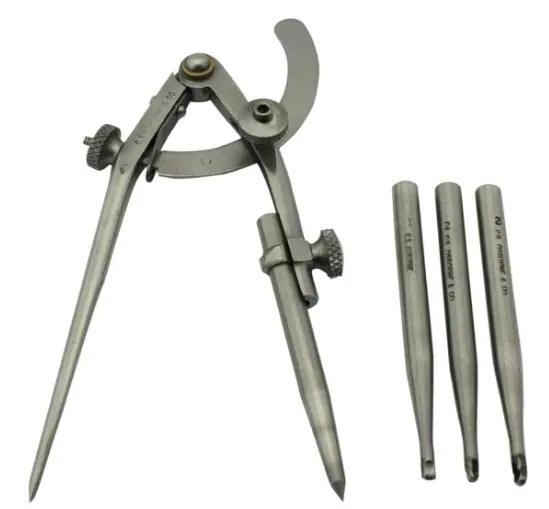
A compass is a tool used in sewing to draw circles or arcs of different sizes on fabric. It consists of two arms, one of which has a pointed end, while the other holds a pencil or pen. The pointed end is placed at the center of the circle or arc, and the other end is moved around to draw the circle or arc of the desired size.
Tracing wheel
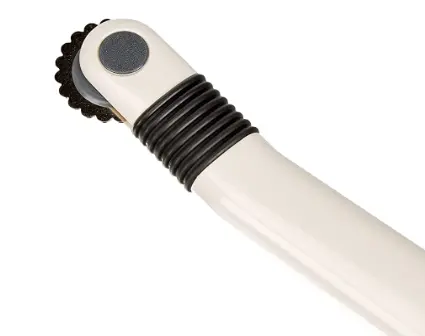
A tracing wheel is a tool used to transfer pattern markings onto fabric. It is a small, toothed wheel attached to a handle that is rolled over the pattern paper, making indentations in the fabric. The markings left behind can then be traced with a fabric marking tool or cut along with scissors.
Pattern notcher
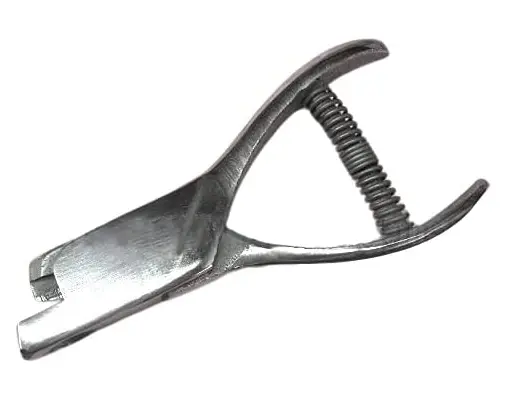
A pattern notcher is a tool used in sewing to create small cuts in the seam allowance of pattern paper. These cuts are used to indicate where the seams should align when the pattern pieces are joined together. Pattern notchers come in different shapes and sizes, and are designed to create different types of notches.
Pattern punch
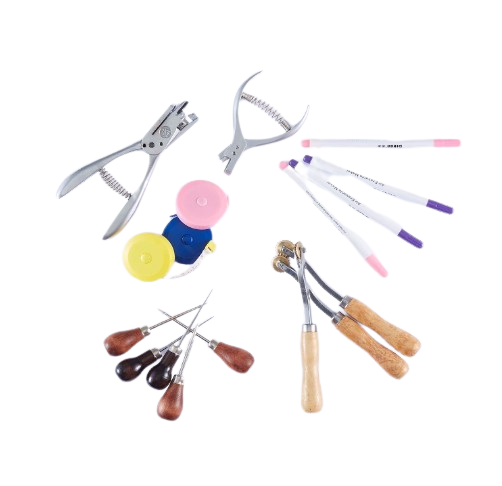
A pattern punch is a tool used in sewing to create small holes in pattern paper. These holes are used to mark the location of buttons, snaps, or other closures on a garment. Pattern punches are available in different sizes, and are designed to create holes of different diameters.
Dressmaker’s curve
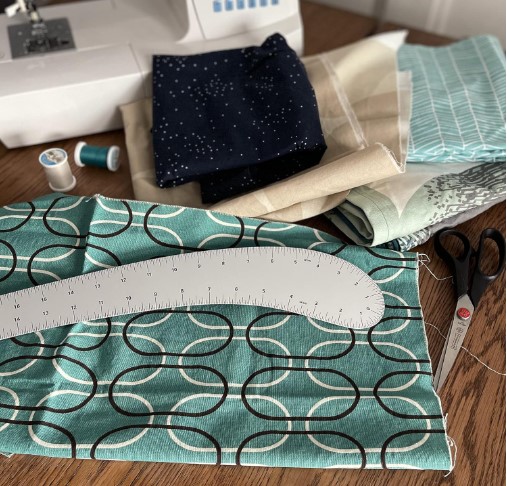
A dressmaker’s curve is a ruler-shaped tool that is used to draw smooth, curved lines in dressmaking and pattern drafting. It is made of plastic or metal and has a curved edge on one side, and a straight edge on the other. It is used to create curves for necklines, armholes, and other curved sections of a garment.
Flexible curve
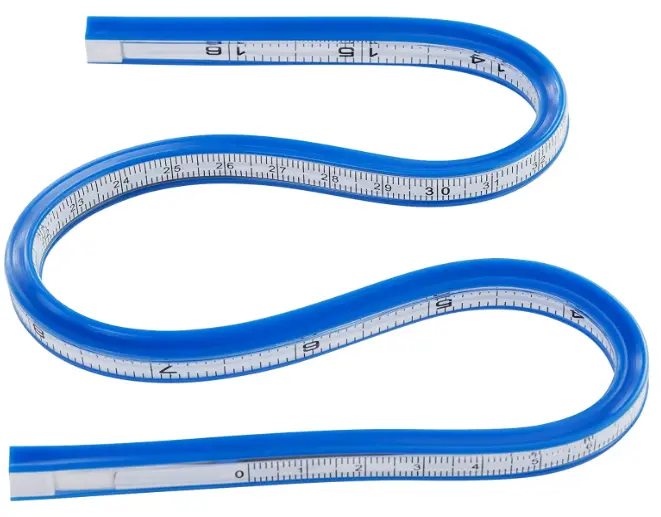
A flexible curve is a long, flexible strip of plastic or metal that is used to draw curved lines in dressmaking and pattern drafting. It can be bent and shaped to match any curve or angle, making it a versatile tool for creating custom curves in garment design.
Measuring wheel
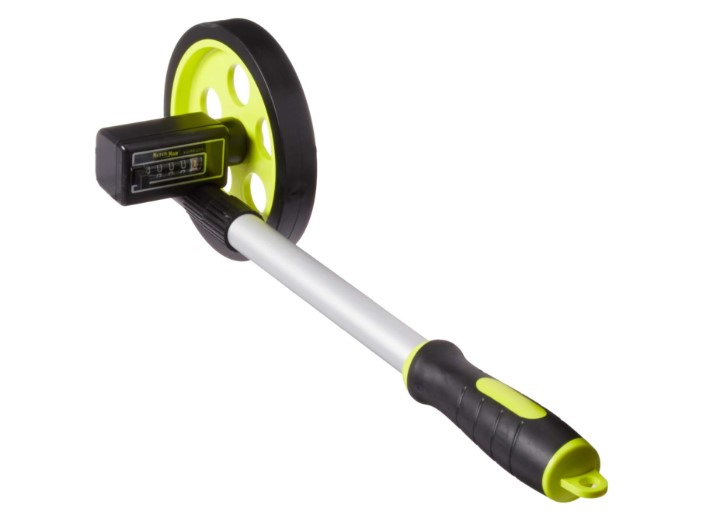
A measuring wheel is a tool used to measure long distances, such as fabric lengths, in sewing. It consists of a wheel with a calibrated circumference that rolls along the length of the fabric. The wheel counts the number of rotations it makes, which is then used to determine the length of the fabric.
Measuring stick
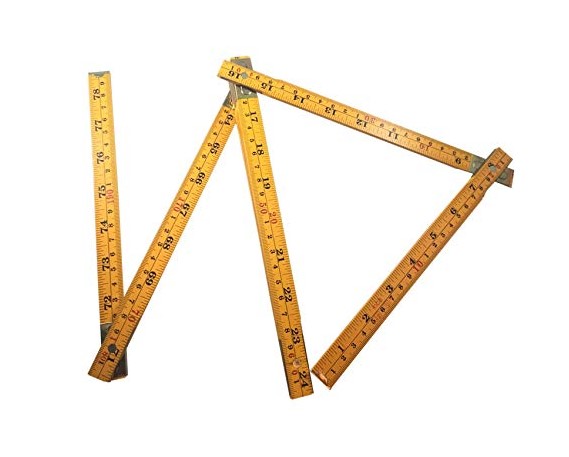
A measuring stick is a straight, flat tool used to measure fabric and other materials in sewing. It is made of wood, plastic or metal and usually has measurements marked in inches or centimeters. It is useful for measuring straight lines and small areas that are difficult to measure accurately with a tape measure.
Calipers
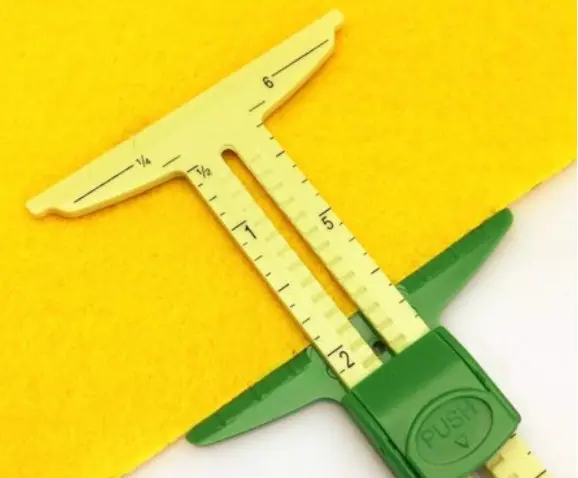
Calipers are a tool used to measure the thickness or diameter of objects in sewing. They consist of two arms with pointed ends that can be adjusted to fit the object being measured. Calipers are useful for measuring buttonholes, button diameters, and other small details in garment construction.
Depth gauge
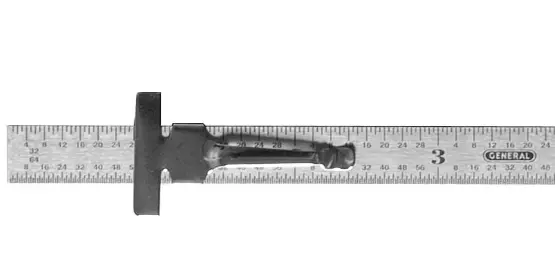
A depth gauge is a tool used to measure the depth of a seam or other detail in sewing. It consists of a metal or plastic gauge with a sliding marker that can be adjusted to measure different depths. It is useful for ensuring that seams and other details are consistent in depth across a garment.
Center finder
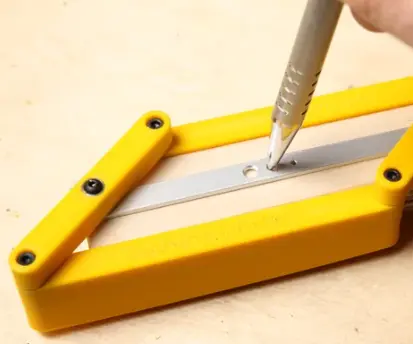
A center finder is a tool used to locate the center of a circle or other shape in sewing. It consists of two arms with pointed ends that are adjustable to fit the shape being measured. The center finder is placed on the shape and adjusted until the arms indicate the center point, which can then be marked for reference.
Protractor
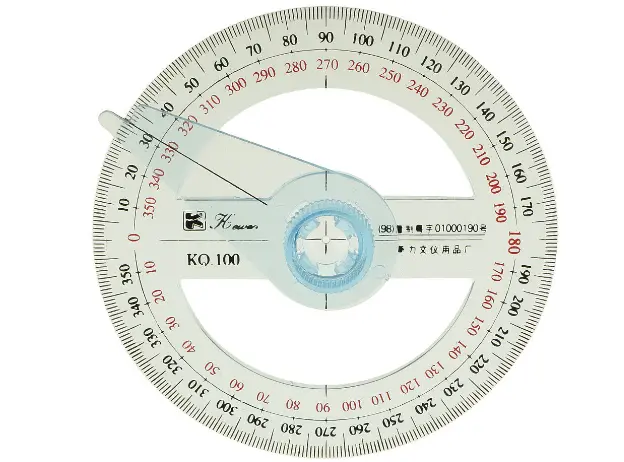
A protractor is a tool used to measure angles in sewing. It is a flat, circular tool with a center point and degrees marked around the edge. The protractor is used to measure angles, either by placing the base of the protractor on the angle’s vertex and aligning the protractor’s zero degree line with one of the angle’s sides, or by placing the base of the protractor on one of the angle’s sides and aligning the protractor’s zero degree line with the other side.
Angle finder
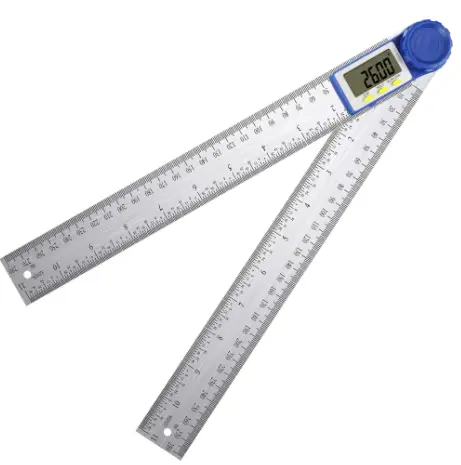
An angle finder is a tool used to measure angles in sewing. It is typically a small, handheld device that can be adjusted to measure angles in degrees. The angle finder is used to measure the angles of seams, hems, and other sewing projects to ensure that they are cut and sewn accurately.
Measuring tools in sewing
Tools For Beginners
Tools For Intermediate Level
Read More: Best Sewing Tables
How you can save money on measuring tools in sewing?
Sewing can be an expensive hobby, and investing in high-quality measuring tools is essential for accurate and professional-looking results. However, there are ways to save money on measuring tools in sewing without compromising on quality. Here are some tips:
By being creative and resourceful, you can save money on measuring tools in sewing without compromising on quality or accuracy. Just remember to invest in the tools that are most important for your sewing projects and take care of them properly to ensure that they last as long as possible.
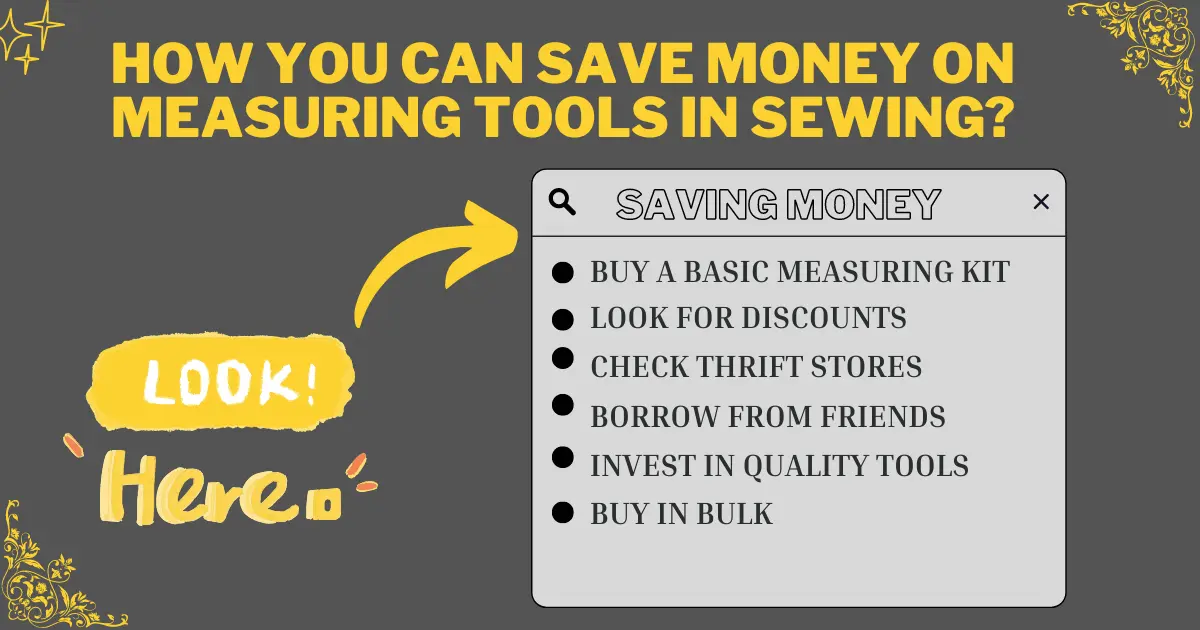
What are the types of sewing tools you need?
To get started with sewing, you’ll need a basic set of sewing tools that includes a sewing machine, needles, thread, scissors, pins, measuring tools, an iron, a seam ripper, marking tools, and a pattern. These tools will allow you to complete a variety of projects and improve your skills over time. As you become more experienced, you can invest in additional tools and equipment to take on more complex projects.
What should you consider before buying measuring tools in sewing?
When buying measuring tools for sewing, there are several important factors to consider. Here are some of the most important things to keep in mind:
Considering these factors when buying measuring tools in sewing, you can ensure that you choose tools that are accurate, reliable, and comfortable to use. This will help you to create high-quality sewing projects and improve your skills over time.
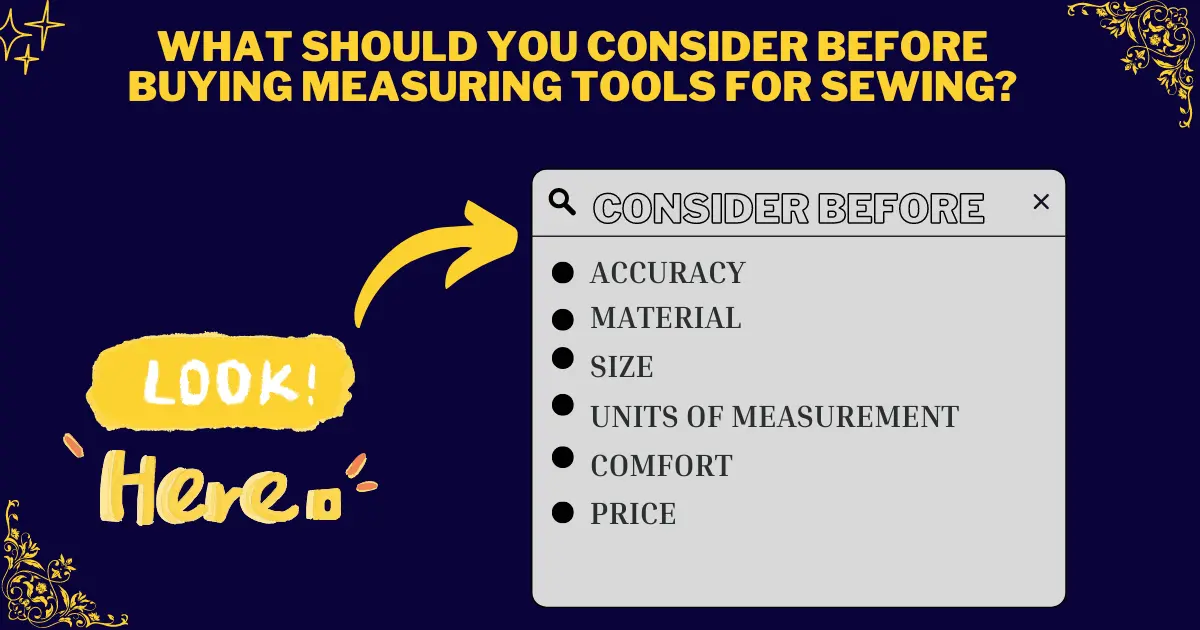
Conclusion – Measuring tools in sewing
In conclusion, measuring tools are essential in the world of sewing. Without them, it would be difficult to achieve accuracy and precision in measurements, resulting in a poorly constructed garment or project. The wide range of measuring tools available can be overwhelming, but with the right knowledge, beginners and intermediate sewists can choose the appropriate tools for their skill level and projects. Understanding how to use each tool correctly and maintaining them properly can also increase the longevity of these tools. By investing in quality measuring tools and using them effectively, sewists can create beautiful and well-fitted garments with confidence.
Read more: How to use sewing pattern
Measuring tools for sewing

